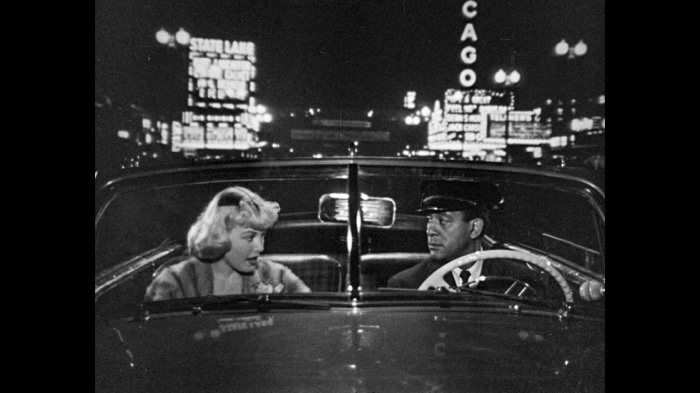





Dir.: Pierre Chenal; Cast: Richard Wright, Gloria Madison, Jean Wallace, Charles Cane, Willa Pearl, Nicholas Joy, Ruth Robert, Gene Michael, George D. Green, Argentina 1951, 104 Min.
After fleeing the Zon-occupied Zone of France in 1942 due to his Jewish origins, Belgian-born French filmmaker Pierre Chenal (1904-1990) settled in Argentina, like many Jews – and even more Nazis after 1945. Argentina was governed by a military junta under Juan Peron who would offer sanctuary to the likes of Dr. Josef Mengele, Auschwitz'”Angel of Death.
Chenal was the first director to adapt James M. Cain’s novel “The Postman always rings Twice” for the screen as Le Derniere Tournant in 1939. Noir cinema flourished in Buenos Aires’ eclectic melting pot of disenfranchised filmmakers whose creative instincts were heightened by their unstable surroundings. Chenal must have found the atmosphere productive, although he would later return to France for good.
Native Son is based on the 1940 novel by Richard Wright who also took on the leading role after the actor originally cast dropped out. Wright and Chenal shared writing credits, with the helmer aiming for a much more realistic version of Carné’s 1939 outing Le Jour Se Leve. There it was class that alienated Jean Gabin’s hero from society, and which led to his death by the police forces. In the case of Native Son, race and class punished the main protagonist Bigger Thomas. But whilst Gabin was a likeable character, Thomas is anything but. The nightmare he finds himself in is very much of his own making, even though society plays a large part in his downfall. His status as a black man was certainly a pre-condition for his eventual fate.
In Chicago, 1940, Bigger Thomas has a dubious past. Living with his mum (Pearl) and sister Nera (Alves) in a one-bedroom flat he is on the lookout for a legal job, but still fraternises with his venal friends. A job as a chauffeur to the wealthy and benevolent Dalton family provides a way out. Henry Dalton (Joy) and his blind wife Helen (Robert) have a daughter, Mary (Wallace) whose boy friend Jan Erione (Michael) is an organiser for race equality, and is keen to rehabilitate black offenders. Thomas is surprised that they treat him as an equal on a night-out on the town where they meet Thomas’ girl friend Bessie (Madison) in her debut as a nightclub singer.
Thomas is jealous of her ‘manager’, who is way too friendly with Bessie. On the way back, the three of them get drunk and Thomas has to carry Mary to her bedroom. When her mother appears, feeling her way through the room, Thomas is well aware of the consequences should he be discovered in her daughter’s room. So he takes a pillow to stop Mary from talking, accidentally suffocating her in the process and then burning the body and coming up with a harebrained kidnapping scheme in the process, trying to extort a ransom from the Daltons for Mary’s return. Bessie becomes involved and soon the police are on the murderer’s tail, along with the local press who, as usual, enjoy finding the most sensational angle of bringing Thomas to justice.
Chicago glowers in DoP A.U. Merayo’s black and white camerawork, casting long shadows in roof-top chase scenes in a world that feels frighteningly real and yet somehow surreal, as the nightmare merges. Chenal shows how prejudice still burns bright between blacks and the authorities which cannot co-exist, and this bitter internecine hatred only goes to intensify the deadly clashes in a film that reflects a society at undeclared war. When it was shown in the USA, the film was butchered by a cut of 30 minutes. Only in 2021 was the American public deemed ‘evolved’ enough to watch the original version. AS
ARGENTINE NOIR | VIENNALE FESTIVAL 2022 | 20 OCTOBER – 1 NOVEMBER 2022